Artnet News Pro
A Whitney Biennial Buyer’s Guide, From a Pioneering Feminist Painter to a Fast-Emerging Figurative Sculptor
We reveal their prices and most coveted works.
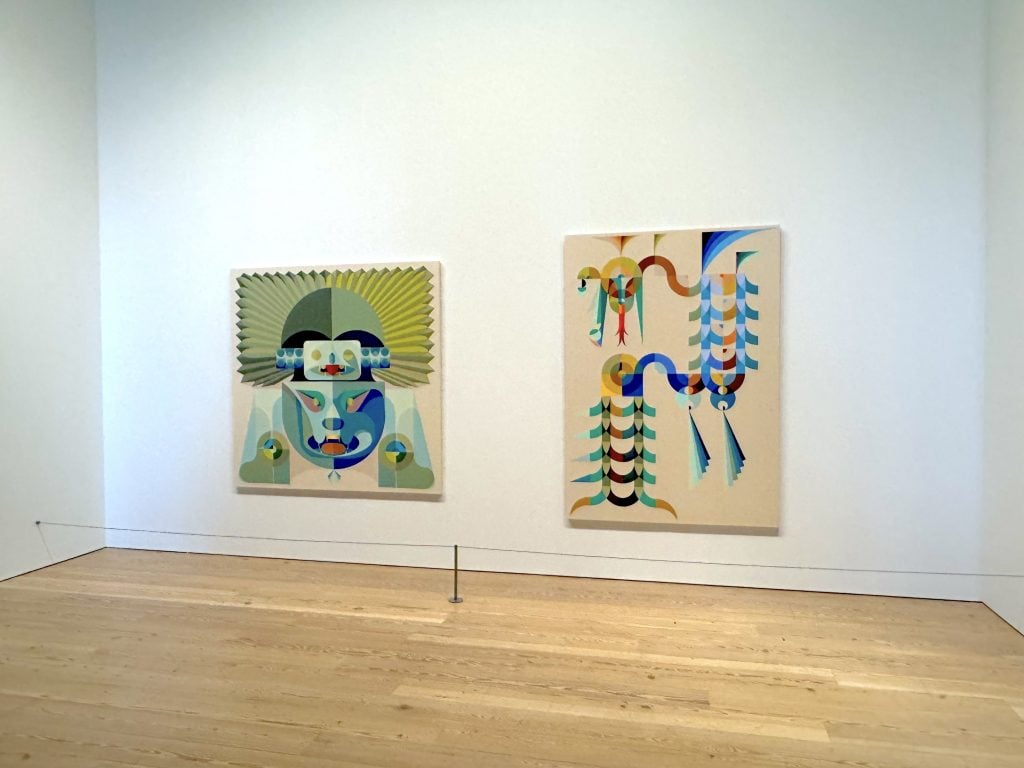
We reveal their prices and most coveted works.

Artnet News

The 2024 Whitney Biennial has arrived, opening to VIPs, the press, and museum members last week. Tomorrow, the general public can visit. “Even Better Than the Real Thing,” as this year’s edition is titled, is relatively compact compared to past iterations, with just 44 artists in the Whitney’s galleries (plus a couple dozen more in the film and performance program). Who will be the breakout stars? Who will join veterans of past Whitney Biennials in the art-market firmament—and in the history books? Below, a look at five artists who have been garnering major attention from collectors.
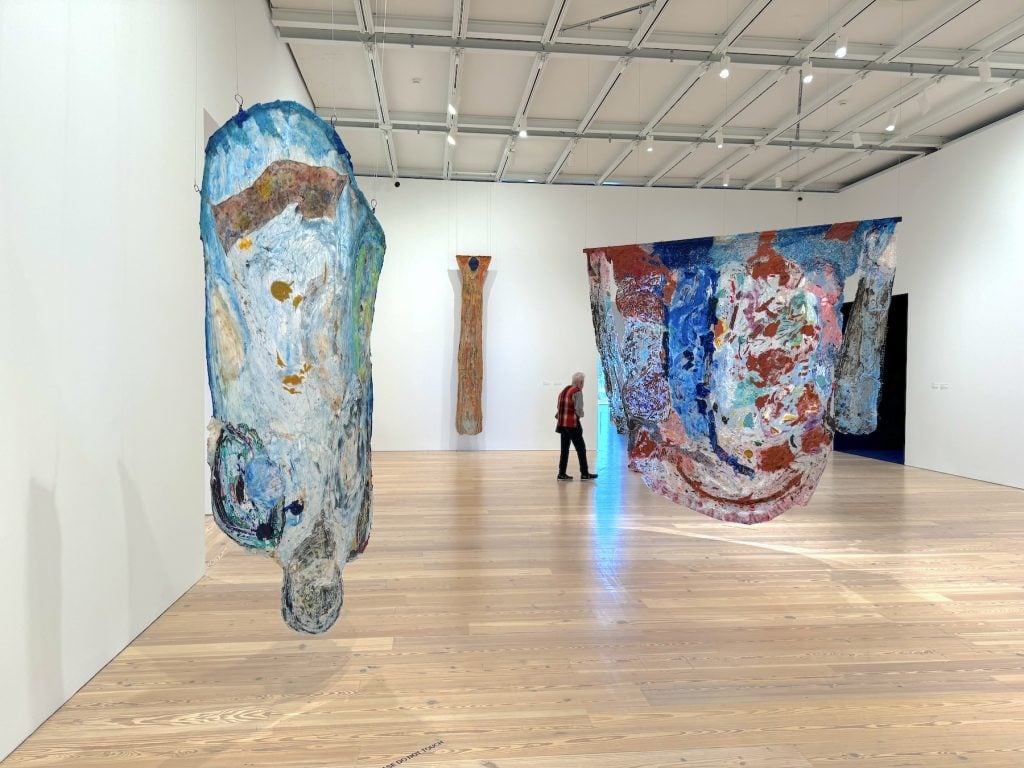
Various works by Suzanne Jackson. Photo by Ben Davis.
Gallery affiliation: Ortuzar Projects
What to know: The prolific artist is enjoying acclaim after decades in obscurity. In the late 1960s, when Jackson was in her 20s, she briefly ran Gallery 32 in Los Angeles, giving early shows to Betye Saar and David Hammons. Her own canvases at the time were mostly figurative, with bodies and symbols seemingly floating in textured, dreamy spaces, rooted in her studies of painting, theater, and dance. Her more recent paintings, known as “anti-canvases,” are abstract and suspended in space without traditional supports. Jackson builds these works by massing and layering wet acrylic paint on dried acrylic paint. The resulting biomorphic armature is further enriched with physical elements like seeds, peanut shells, bells, leather straps, and old ballet costumes.
Since 1996, Jackson has lived in Savannah, Georgia; she taught in the Savannah College of Art and Design’s painting department until 2014. Her recent accolades include the Jacob Lawrence Award from the Academy of Arts and Letters (2022), an Anonymous Was A Woman grant (2021), and a Joan Mitchell Foundation Painters & Sculptors Grant (2019).
Most wanted: Early figurative paintings on canvas and “anti-canvases.”
Price points: Gallery pieces range from $30,000 for works on paper to about $1 million for significant 1970s works on canvas. Just 13 works by the artist have come up at auction, and prices have spiked in the past year, according to Artnet Price Database. Jackson’s auction record is $170,000.
Up next: Jackson will have a solo exhibition of works on paper at Ortuzar Projects in New York in September, with early drawings, monumental sculptural works from the early 2000s, and recent “environmental abstractions,” which include found papers suspended in pure acrylic paint.
—Katya Kazakina
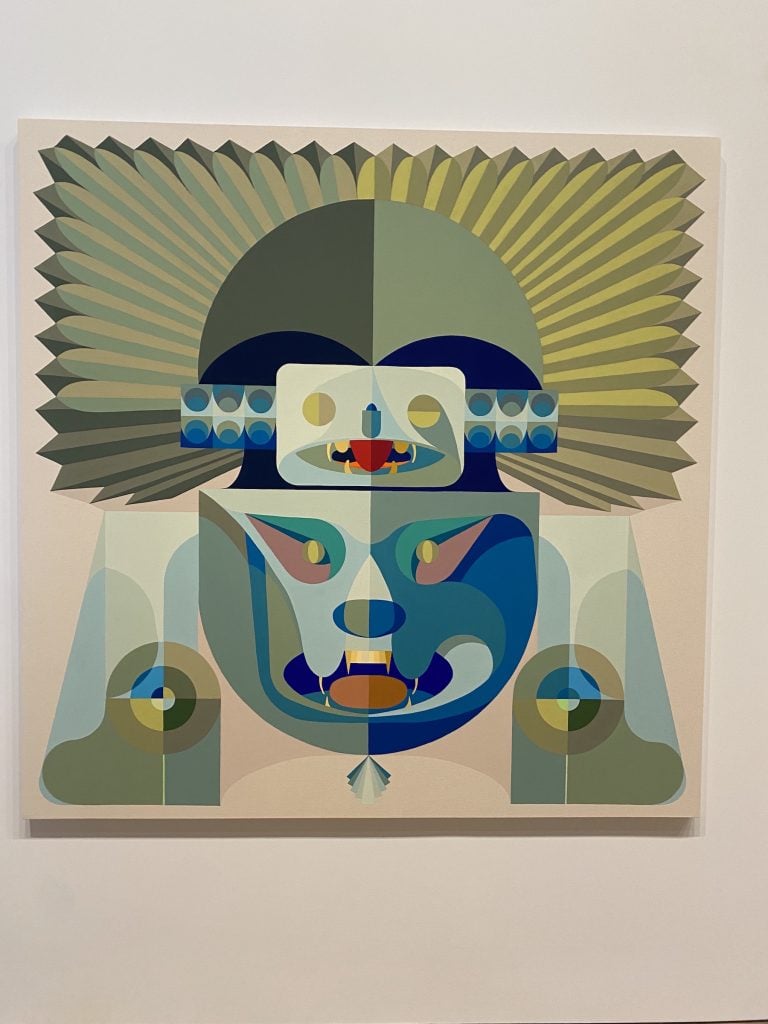
Installation view of Eamon Ore-Giron, Talking Shit with Viracocha’s Rainbow (Iteration I).
Photo by Eileen Kinsella
Gallery affiliation: James Cohan Gallery, New York
What to know: Ore-Giron, who lives in Los Angeles, has developed a cross-cultural practice that includes painting, music, and video. In the biennial, the artist has returned to his “Talking Shit” series, which he began in 2017 while living in Guadalajara, Mexico. These paintings, textiles, and ceramic-tile works represent an imagined conversation between the artist and deities from Mexico and Peru.
“The ‘Talking Shit’ series is a way for me to have this conversation with these symbols and this mythology that sometimes can feel very clinical in some ways or can feel removed from our everyday life,” the artist says in an audio guide accompanying the show.
Discussing two works that depict Andean deities, Talking Shit with Viracocha’s Rainbow (Iteration I) and Talking Shit with Amaru (Wari), the artist said: “Viracocha is teacher of the earth and Viracocha is the creation god. And then the other more vertical painting is an Amaru, a version of an Amaru, which is a mythological creature from the Andes. And the Amaru was born from the rainbow that Viracocha created. It was born from the chest of the rainbow. And so to me, it’s really cool that these two pieces are existing together in the exhibition because they’re related in that way.”
The idea of the mutability of cultural symbols and the making and remaking of their significance is “a touchstone” of the artist’s practice, James Cohan Gallery noted.
Most wanted: While the “Talking Shit” paintings are a newer series for the artist, they have been met with an enthusiastic response from both private collectors and museums. Ore-Giron’s “Infinite Regress” and “Black Medallion” works also remain highly sought after. However, James Cohan Gallery has been noticing an “increased intensity” of interest for recent works in other mediums, such the mosaic glass works shown at Frieze Los Angeles last month.
Price points: Paintings range from about $20,000 up to about $325,000, while mosaic works range from $80,000 to $100,000.
Up next: The artist is working on a public commission for the L.A. Metro. A handful of major museum commissions and exhibitions are also in the pipeline for 2025 and will be announced at a later date.
—Eileen Kinsella
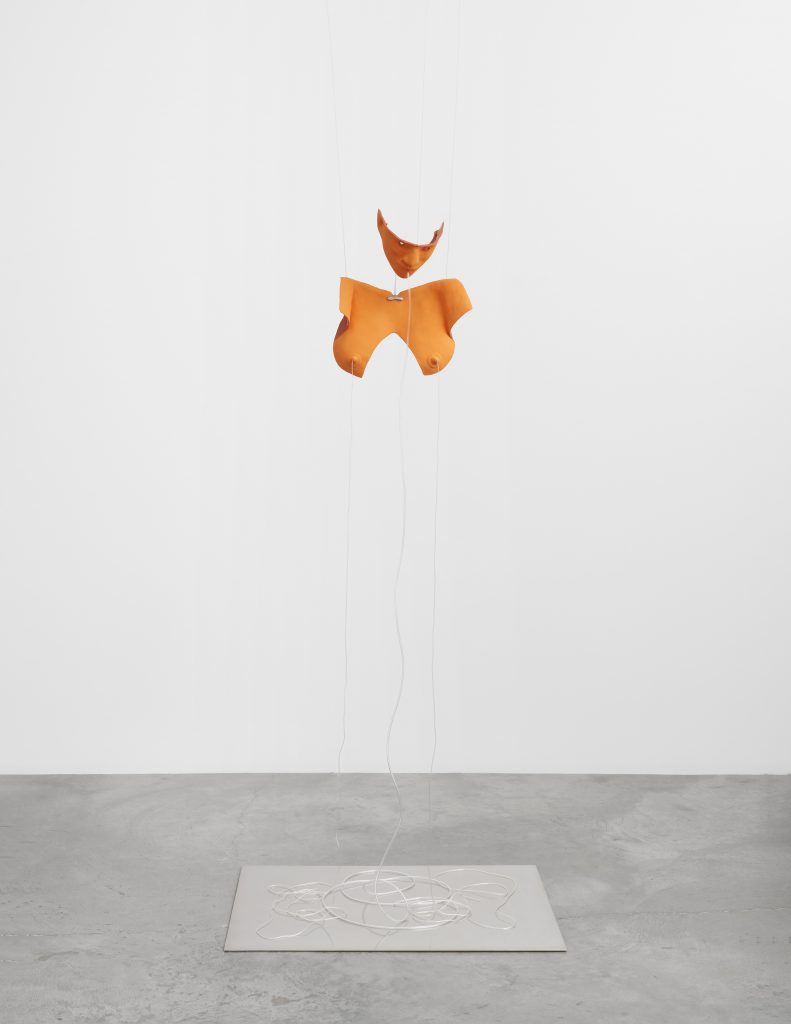
Julia Phillips, Nourisher (2022), at the Whitney Biennial in 2024. Courtesy: Matthew Marks gallery.
Gallery affiliation: Matthew Marks gallery
What to know: Phillips is best known for sculptures that evoke functional objects and the human body that feel playful, clinical, and vaguely equestrian. Working mainly with metal and ceramics, she seeks to create metaphors for social and psychological experiences and power relationships. Her sculptures often feature elements cast from her own body. Recent works have included materials such as stone, medical tubing, and recording devices.
Born and raised in Hamburg, Germany, Phillips lives between Berlin and Chicago, where she is an assistant professor of visual arts at the University of Chicago. She’s had one-person exhibitions at MoMA PS1 in New York and the Kunstverein Braunschweig in Germany, and was included in the Berlin Biennial and the New Museum Triennial.
Most wanted: Sculptures with straps, leather, metal hardware, and ceramic components, similar to Nourisher at the Whitney, with its eerie, theatrical suggestion of a human figure that seems to float in mid-air with medical tubing emanating from the mouth and nipples.
Price points: $10,000–$100,000
Up next: The artist is working on a yet-to-be-announced U.S. museum exhibition. Her first monograph, Julia Phillips: Energy Exchange was recently published by Mousse.
—Katya Kazakina
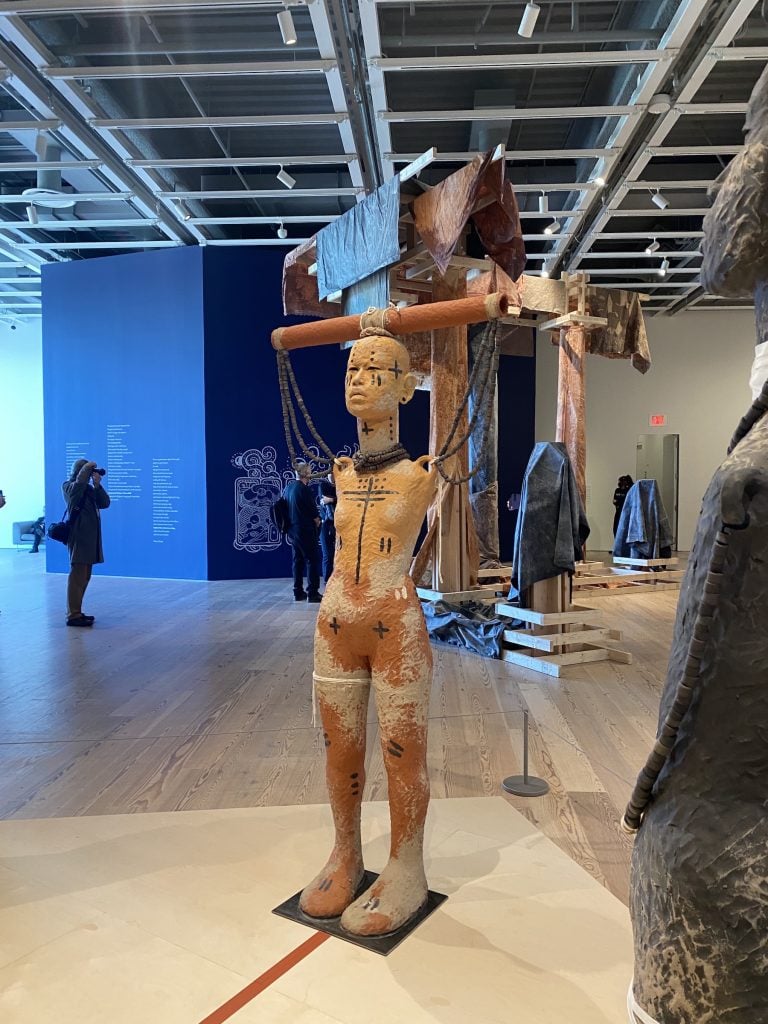
Installation view of Daughters (2024) by Rose B. Simpson artwork at the 2024 Whitney Biennial.
Photo Eileen Kinsella.
Gallery affiliation: Jack Shainman, New York, and Jessica Silverman, San Francisco
What to know: Simpson, who lives and works in Santa Clara Pueblo in northern New Mexico, makes mixed-media and clay sculptures that examine life in the postmodern and postcolonial world. Simpson came of age in a multigenerational lineage of artists working with clay, and her practice is marked by indigenous traditions.
At Art Basel in Switzerland in 2021, Jessica Silverman showed Simpson’s intriguing sculptures in the Statements section, which is devoted to solo projects, drawing serious buzz and eager buyers. Since then, her star has only continued to rise, with the presentation of the life-size installation Daughters at the current biennial. A work comprised of standing totem-like females was also recently featured on the Whitney rooftop.
Of the Daughters installation, Simpson said, “It was important for me to have these beings in a four-cardinal-direction interaction because of the star that it makes on the floor between them. . . . I think of standing as standing in, standing within, standing up to, standing up for, standing up with. And how they, as larger than life, become sort of monuments to the action of taking space.”
“Rose has an uncanny ability to communicate existential truths in three dimensions,” Silverman said. “Her voice is fresh and unique, but it also has deep roots in her maternal ancestral line. Her sculptures have power; they are both primordial and contemporary.”
Most wanted: “All of Rose’s works are in demand—including her sculptures in clay, bronze, and steel,” Silverman said. “We’ve basically sold out of her bronzes, with only an artist’s proof left of Heights I. Her slightly larger-than-life ceramic figures, like those in the biennial (Daughter 1 through 4), are also hotly sought after. No ceramic works are available at the moment.
Price points: The artist and gallery declined to share current prices, but to give some context: her works at Art Basel in 2021 were priced between $20,000 and $50,000.
Up next: On April 11, Simpson’s Madison Square Park public art commission, Seed, will be unveiled. It will consist of one 4-foot bronze figure and seven 18-foot outdoor weathered-steel statues with bronze. Simultaneously, she will show a different interpretation of Seed in bronze, at a smaller 8-foot scale, at Inwood Hill Park in Upper Manhattan. On March 23, the Norton Museum in West Palm Beach, Florida, will open a two-woman show with Simpson and her mother, Roxanne Swentzell, titled “Journeys of Clay.”
—Eileen Kinsella
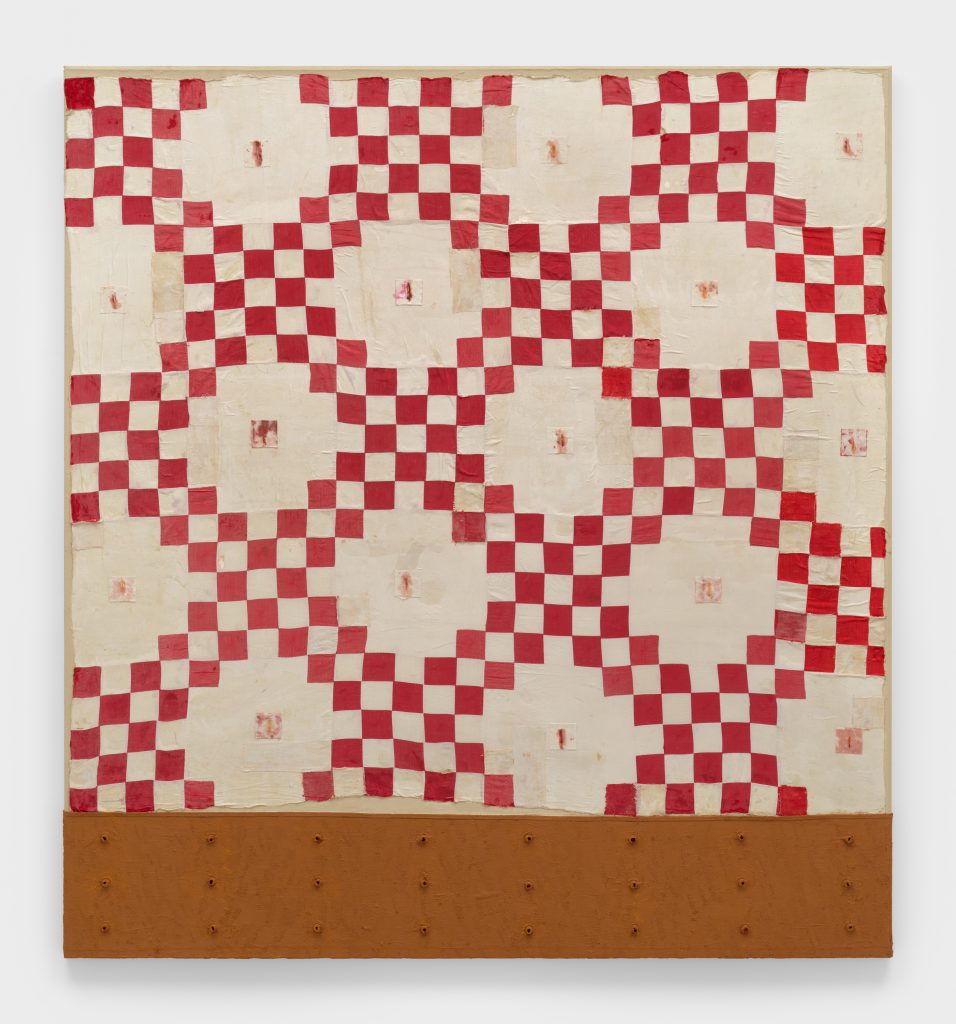
Harmony Hammond, Patched (2022). © 2024. Harmony Hammond / Licensed by VAGA at Artists Rights Society (ARS), New York.
Gallery affiliation: Alexander Gray Associates
What to know: Harmony Hammond has been a key figure in the feminist art movement for more than half a century, using her unique approach to minimalism to advance narratives around gender politics and identity. Aside from her own artwork, Hammond is known as one of the co-founders of A.I.R. in 1972, the first women’s cooperative art gallery in New York.
In 2019, a retrospective of Hammond’s work was hosted by the Aldrich Contemporary Art Museum in Ridgefield, Connecticut, and her work was included in the blockbuster exhibition “Women in Abstraction: Another History of Abstraction,” which was organized by the Centre Pompidou in Paris in collaboration with the Guggenheim Museum Bilbao. Hammond’s paintings are held in the permanent collections of over 35 museums, including the Museum of Modern Art, Minneapolis Institute of Arts, and Walker Art Center, and the Whitney.
Most wanted: Since the start of the millennium, Hammond has been focusing on modernist-sryle paintings and fabric sculpture, creating pieces similar to the ones currently on view at the Whitney, which were painted in 2020, 2021, and 2022.
Price points: Alexander Gray Associates declined to share prices, citing the preference of the artist.
Up next: Hammond will have work in a group exhibition at New Mexico Museum of Art in Santa Fe titled “Off-Center: New Mexico Art, 1970–2000,” which will be on view from June 8 to May 4, 2025.